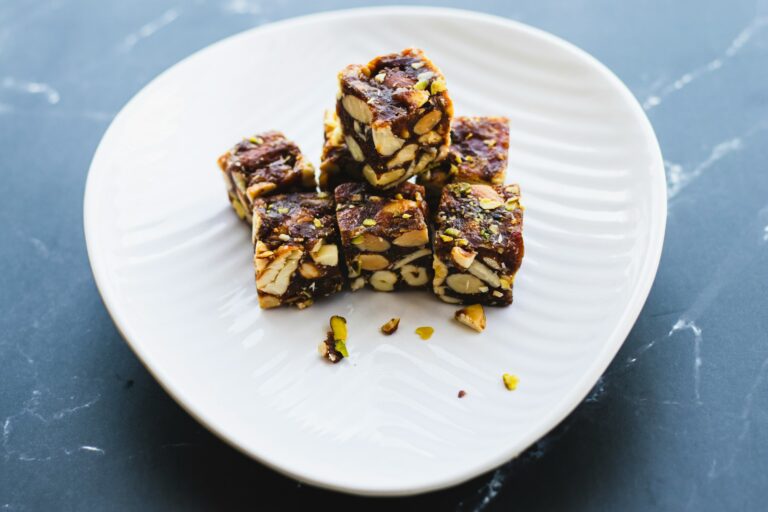If you’ve been cutting back on refined sugar, you may be wondering — what’s the best way to add sweetness without harming your health? The answer isn’t to completely avoid sweeteners, but to choose natural, low-impact options that work with your body instead of against it. The right natural sweetener can help you enjoy your favorite flavors while supporting your heart health, blood sugar stability, and overall wellness.
In this guide, we’ll explore the top natural sweeteners, their health benefits, how they compare to sugar, and the best ways to use them. We’ll also share how you can integrate them into your sugar-free lifestyle with the help of our CardioForte4Life products and resources.
1. Stevia
Stevia is a zero-calorie sweetener extracted from the leaves of the Stevia rebaudiana plant. It’s 200–300 times sweeter than sugar, meaning you only need a tiny amount to sweeten drinks or recipes.
- Benefits: Zero calories, does not raise blood sugar, suitable for people with diabetes.
- Best Uses: Coffee, tea, smoothies, yogurt, and cold desserts.
- Watch Out For: Some blends mix stevia with other sweeteners — always check labels.
2. Monk Fruit Sweetener
Monk fruit, also called Luo Han Guo, is a small melon-like fruit native to Southeast Asia. Its sweetness comes from antioxidants called mogrosides, which do not affect blood sugar.
- Benefits: Zero calories, no effect on blood sugar, contains antioxidant properties.
- Best Uses: Baking, sauces, beverages, and frozen desserts.
- Watch Out For: Pure monk fruit can be expensive — some products are mixed with erythritol for volume.
3. Erythritol
Erythritol is a sugar alcohol naturally found in some fruits and fermented foods. It contains about 70% of sugar’s sweetness but only 6% of the calories.
- Benefits: Very low in calories, minimal impact on blood sugar, easy to use in recipes.
- Best Uses: Baking, chocolate, and as a 1:1 sugar substitute in many recipes.
- Watch Out For: Some people experience mild digestive discomfort if they consume large amounts.
4. Raw Honey
While honey does contain sugar, raw honey is less processed and offers antioxidants, vitamins, and antibacterial properties. It’s best used in moderation as part of a balanced diet.
- Benefits: Contains trace nutrients, antioxidants, and antimicrobial compounds.
- Best Uses: Tea, warm cereals, homemade dressings, and glazes.
- Watch Out For: Still raises blood sugar — use sparingly, especially for heart health goals.
5. Dates and Date Paste
Dates are naturally sweet and nutrient-rich, containing fiber, potassium, and antioxidants. Blending dates into a paste creates a whole-food sweetener that works in many recipes.
- Benefits: Whole food source with fiber and nutrients, slower blood sugar impact compared to refined sugar.
- Best Uses: Energy balls, baked goods, smoothies, and sauces.
- Watch Out For: Still calorie-dense — balance with other nutrient-rich foods.
6. Coconut Sugar
Coconut sugar is made from the sap of coconut palm flowers. It has a lower glycemic index than table sugar and contains small amounts of minerals like iron, zinc, and potassium.
- Benefits: Slightly lower glycemic impact, retains trace nutrients.
- Best Uses: Baking, coffee, tea, and desserts.
- Watch Out For: Still contains fructose and should be used in moderation.
7. Yacon Syrup
Yacon syrup is extracted from the roots of the yacon plant and is rich in prebiotic fiber (fructooligosaccharides), which can benefit gut health.
- Benefits: Supports gut bacteria, lower calorie content, mild impact on blood sugar.
- Best Uses: Drizzling over pancakes, oatmeal, or yogurt.
- Watch Out For: Excess consumption may cause digestive discomfort.
How to Choose the Right Sweetener for Heart Health
When picking a natural sweetener, consider your overall health goals, budget, and cooking style. For heart health, the best choices are those that:
- Have minimal impact on blood sugar.
- Contain beneficial compounds like antioxidants or prebiotics.
- Encourage you to use less over time, reducing your overall sweet cravings.
If you’re focused on weight management and blood sugar stability, Weight Management resources can help you plan balanced meals around your sweetener choices.
Practical Tips for Using Natural Sweeteners
- Start small — you’ll be surprised how quickly your taste buds adjust to less sweetness.
- Mix sweeteners for the best taste and texture in baking.
- Pair with protein and fiber to keep blood sugar steady.
- Always check labels — some products labeled “natural” still contain refined sugar.
- Incorporate them into whole-food recipes from our Healthy Eating category.
Final Thoughts
Natural sweeteners can be a game-changer in a sugar-free or low-sugar lifestyle, especially for those focused on heart health. By choosing wisely and using them in moderation, you can enjoy delicious meals and treats without the negative effects of refined sugar.
Ready to take your sugar-free journey further? Explore our All Products for sugar-free supplements and health boosters — and if you love sharing health tips, check out our Affiliate Program to earn while inspiring others.





